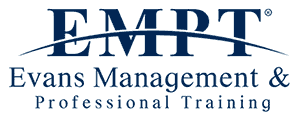Personal Development Plans

Current Fostering National Minimum Standard 20.5 requires that foster carers’ personal development plans set out how they will be supported to undertake ongoing training and development that is appropriate to their development needs and experience. These standards also (NMS 20.6) require that the reviews of each foster carer’s approval include an appraisal of performance against […]
Alternative Views of Management

Approaches to management used in social care have been influenced by many years of management theory. For years management studies have examined management practice to distil the principles and practise of good management. Identifying such principles and practises can help to enable managers to improve their management performance. Several different schools of thought have emerged […]
Supervised Child Contact

Supervised child contact usually takes place when a child has or is likely to suffer harm. Supervised contact should ensure the safety of a child or children having contact; it also assists in building and sustaining positive relationships between a child and members of their non-resident family. Potentially, supervised child contact can be intrusive, […]
The Fostering Network the State of the Nation’s foster care survey (2016)
The Fostering Network the State of the Nation’s foster care survey (2016) – What foster carers think and feel about fostering is now available. The Fostering Network research involved in total 2,530 foster carers from across the UK completed the survey online: 1,942 of these fostered in England, 359 in Scotland, 122 in Wales and […]
TSD 2.3 (a & b) Promoting Child Contact
Importance of child contact when promoting relationships with parents and others Child contact refers to all relationship links between a child and their families of origin and friends, regardless of the form and frequency of these links. This may include overnight stays, telephone calls, exchange of letters or photographs or indirect links through third parties. […]
TSD Standard 4 Know how to communicate effectively
Effective communication in foster care settings People working in fostering settings often communicate to share ideas/information; to offer reassurance; to build relationships; to ask questions and much more. Factors to consider for effective communication includes: the level; pace; tone; sensory needs; content; use of jargon/slang; child or young person’s or colleagues wellbeing and ability. This […]
Training Support and Development Standard 3.4 (Promoting positive behaviour)
Promoting principles for supporting the behaviour development in children and young people whilst meeting the Training Support and Development Standards. In terms of promoting positive relationships and socially aware behaviour the following methods are sometimes useful in supporting behaviour management and working in line with the Training Support and Development Standards: Using positive reinforcement strategies; […]
Promoting Safe and stable placements in which children can develop safe and secure relationships
The Ofsted Framework for Independent Fostering Services asserts that Looked After children should be supported, ‘in care, to live and thrive in safe and stable placements, in which they develop safe and secure relationships’. The Ofsted Framework for Inspecting Children Homes (2015:31), related to promoting safe and stable placements, states ‘where young people have left […]
Health and social care training and the use of reflective functioning
Reflective functioning is described by various researchers to involve both a self-reflective and interpersonal components in which an individual grasps the complex interplay between their own feelings and those of others. One way of trainers/teachers manifesting the characteristics of reflective thinking is through models of training and/or teaching delivery. For health and social care training […]
